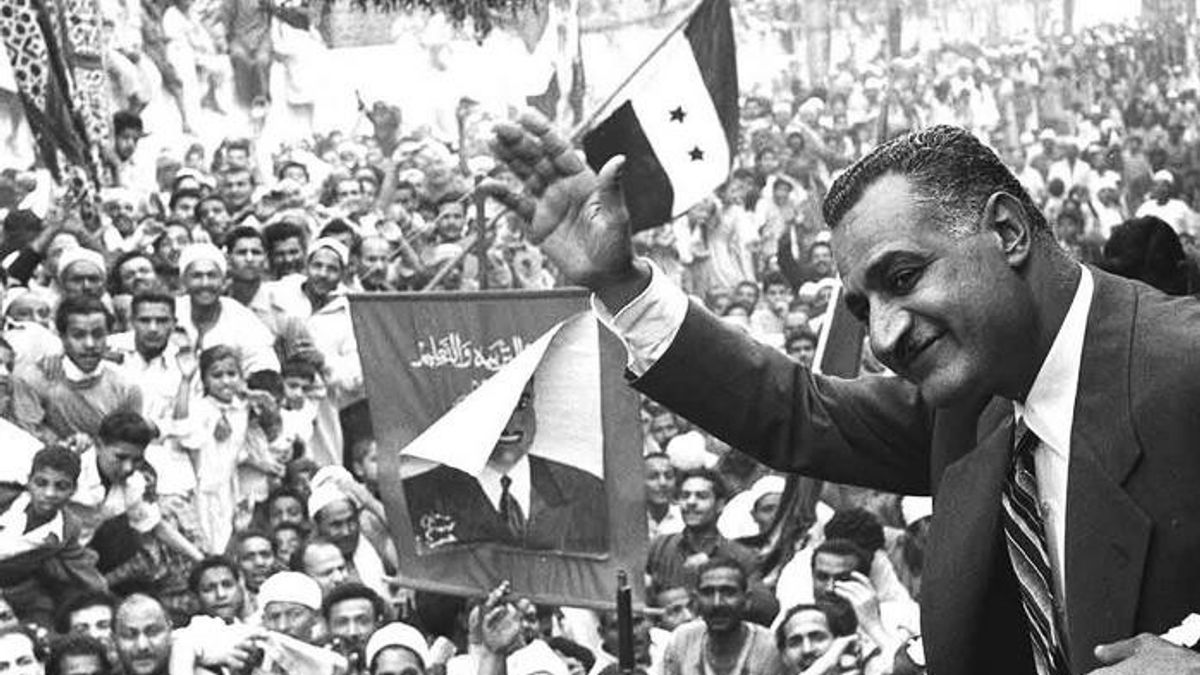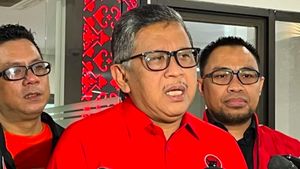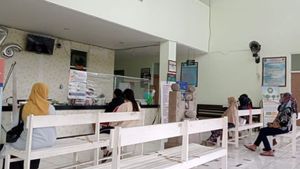JAKARTA - Gamal Abdul Nasser is listed as the first president of the country of Egypt. He was elected president with a 99.8 percent vote after overthrowing the monarchy and overthrowing King Farouk. How is the struggle?
The man who was born on January 15 in Bakos, Alexandria, was active in the Egyptian movement against colonialism and foreign rule while at the Military Academy. He was involved in the Israeli War of Independence in 1948 when he was a Major. When peace was achieved, Nasser returned to Egypt and led the Egyptian Armed Forces to overthrow King Farouk.
At that time he was involved in the formation of a clandestine group called Free Officers Movement (Free Officers) in 1949. This group contains army officers who want to abolish the monarchy system aligned with the British Empire.
This movement originated from the unrest that Nasser had felt since the Palestinian War. He felt a lack of coordination between Arab troops. In addition, he also felt that he was not fully supported in terms of weaponry.
In addition, when the war was going on, weapons experts were instead asked to build a chalet - a luxury house - for King Farouk in Gaza. The highest command has an interest in occupying the largest possible area regardless of its strategic value and will influence the chances of winning the battle.
"The final blow was when I was ordered to lead a battalion of infantry sixth heading to Iraq Swaidan being attacked by Israel. To my surprise, I found out the details of our movement published in newspapers Cairo even before we did it," said Nasser, quoted Nasser Bibalex .
Starting a coup
Upon returning to Egypt, Nasser realized that the real fighting was in his homeland. During the war in Palestine, Nasser learned that politicians were busy collecting profits from the weapons they bought cheaply and then sold to the army.
It was then that Nasser secretly began plotting a coup movement. The Free Officers began distributing flyers calling for army reform.
They supply weapons and carry out appropriate training. Free Officers also asked leaders to stop wasting the nation's wealth and improve the standard of living of the poor. At that time, the arms corruption scandal began to spread, along with other economic scandals involving parliament.
On 26 January 1952, demonstrations began in Cairo in response to the massacre of police officers by British forces that took place in Ismailia in which 46 officers were killed and 72 injured. A fire broke out but authorities took no action except at night after the fire destroyed 400 buildings, leaving 12,000 people homeless.
At that time, a chaos known as the 'military officers crisis' occurred between the Free Officers group and King Farouk because he brought General Serri Amer to chair the executive committee. Free Officers decided to put forward their nomination led by General Mohammed Naguib who was elected president by the majority despite the fact that the election was overturned by the king.
However, realizing that he was supported by the army, Nasser decided to advance the revolutionary period that should have occurred in 1955. Therefore, the army began moving on the night of 23 July 1952 occupying the High Command building in Alkuba Cuban. Periwra Gratis captures the leaders who are discussing how to deal with the Free Officers.
Three days after the Revolution, King Farouk abdicated. The following day, Nasser was re-elected as President of the Free Officers Movement. On 18 June 1953, the constitutional monarchy was dissolved and Egypt was declared a Republic with Mohammed Naguib as President.

At that time Nasser was still Deputy Prime Minister and Minister of the Interior. Soon he left his position.
In 1954, Nasser moved from behind the scenes. He overthrew Naguib from power and finally declared himself Prime Minister of Egypt.
Within two years of his leadership, Nasser managed to build a reputation as a popular leader. He announced a new constitution that made Egypt a more democratic Arab country. On 23 June 1956, Egypt's elections were held which resulted in the birth of a new constitution and the presidency of Nasser.
Nasser's leadership
According to the records of the pro-democracy NGO EISA , Nasser's 18-year leadership has left an important legacy in Egypt's political, economic and social landscape. Nasser built Egypt on the principle of secularism, despite opposition from Islamist groups such as the Muslim Brotherhood.
Nasser also helped nationalize industrial assets, reform land use and establish the state as the main provider of goods and services to citizens. Land reform was carried out from 1952 onwards, wealth was redistributed by the enlarged country, available agricultural land was expanded.
In addition, the Aswan Dam was built and a period of rapid economic growth was shared. Nasser also expanded the educational infrastructure, causing a substantial middle class to emerge.
Nasser's twilight was marked by crisis due to the defeat of Arab countries including Egypt by Israel in the Six Day War. In addition, in the early 1970s Nasser took a high-risk decision which many opposed, namely to make peace with the United States (US) and Israel through the United Nations (UN).
Until he died today September 28 half a century ago or in 1970, Nasser died of a heart attack. He died at the age of 52.

The English, Chinese, Japanese, Arabic, and French versions are automatically generated by the AI. So there may still be inaccuracies in translating, please always see Indonesian as our main language. (system supported by DigitalSiber.id)










